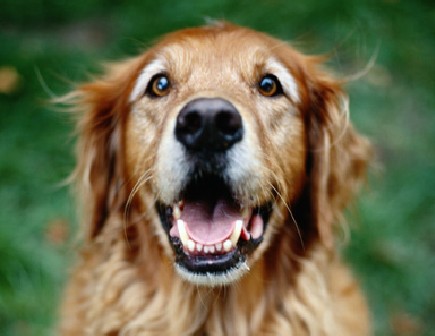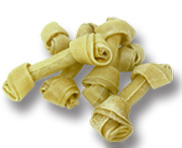Conventional Laser therapy has been in use for more than 25 years. More than 3,000 scientific publications test its effectiveness and the validity of this approach. It has been demonstrated that it is not toxic and it has no side effects. Today, it is used as a monotherapy or as a complementary therapy. Carnegy Animal Hospital has successfully incorporated cold laser therapy into their practice of veterinary medicine since 2009 and we have had some excellent results. We are excited to announce that in June of 2015, we have moved onto new technolodgy and have recently invested in the Multi Radiance Activet MR4 portable laser system.
Multi Radiance Medical’s Veterinary Laser Therapy devices provide accelerated pain relief and healing. This safe and powerful technology is applied with a hand-held applicator providing targeted Super Pulsed Laser light that stimulates cell regeneration.Throughout the world, cold Laser Therapy is used to relief acute/chronic pain, back pain, carpal tunnel, arthritis pain, fibromyalgia, tennis elbow, muscle strain, bursitis, tendonitis, and other injuries in humans, now we’re bridging the gap and offering safe and effcetive for all aspects of Veterinary care.
Advanced technology, such as the LaserStim™ is the world’s first FDA cleared device that combines Laser Therapy and E-Stim. The LaserStim emitter identifies optimal treatment areas, provides highly targeted healing laser treatment and allows for insurance reimbursement. This is one example of a full range of sophisticated, yet cost-effective Super Pulsed laser products. Multi Radiance Medical is an international corporation with a presence in over 30 countries and has been servicing customers for 20 years. Their products have been approved by Health Canada.

Why Multi Radiance?
-
• Convenient -Portable 8 hour rechargable battery- Effective and more Versatile – 25,000 mW of power for shorter treatment times• Multiple Treatment Modes-Preset LaserSweep™ Programs – Pulsing Red & Blue Radiances -Allows you to treat more conditions – Drug Free Pain Relief – Non-invasive, natural and safe
Veterinary FAQs
Can low-level laser therapy be combined with other types of veterinary medicine?
Low-level laser therapy can be, and often is, combined with other types of veterinary medicine. Because low-level laser decreases pain and enhances circulation, your veterinarian may choose to use the cold laser in conjunction with other forms of therapy to enhance the benefits of those therapies. In general, low-level laser therapy integrates well into a treatment plan that utilizes either traditional or alternative forms of veterinary medicine. If your companion animal is receiving low-level laser therapy from a practitioner other than your regular veterinarian, it is imperative that both individuals are kept updated about the ongoing treatment in order to provide coordinated care of your pet, to allow proper evaluation of treatment and to minimize any avoidable interactions or interferences. Our veterinarians, who are well-trained and versed in a variety of rehab modalities including low-level laser therapy, collaborate with the pet’s primary care veterinarian to appropriately coordinate care.
How safe is low-level laser therapy?
Low-level laser therapy is very safe when done properly. To ensure that laser therapy is done only in cases where it is appropriate, an exam is first done by a veterinarian. The veterinarian will then provide the specifics for the application of the cold laser. Although the term “laser” may conjure up images of the high-powered version sometimes used in surgical settings, the low-level laser causes no temperature change to the patient during or after the treatment and there is no risk of burning. Protective eye wear is required during application of the low-level laser and one should not look directly at the laser light. Laser therapy should not be used in certain patients with that are pregnant or that have cancer, as it stimulates cell growth and does not differentiate between healthy and cancerous cells.
How successful is low-level laser therapy?
Because low-level laser therapy has a cumulative effect, for best results treatments should be done at the frequency recommended by your veterinarian. Low-level laser therapy is often recommended in conjunction with other modalities to provide the best outcome and may be used as either a primary or complimentary therapy.
How can my pet benefit from low-level laser therapy?
If your pet has sustained an injury, undergone orthopedic surgery, or suffers from arthritis or other painful conditions, they may be a candidate for low-level laser therapy. The low-level laser not only speeds the healing process but affects the overall quality of the repaired tissue. Muscle, tendon and ligament injuries require increased collagen production for successful healing and the low-level laser stimulates this function. The light also increases vascular growth and dilation for improved circulation in pets that may have limited movement. Pets experiencing pain from their condition may find relief from cold laser treatments. The biochemical effect of the low-level laser boosts the body’s production of endorphins. Low-level laser therapy is another great way to treat the source of the pain, thereby making it less likely that your pet will need additional pain reducing medication
What conditions are most often treated with low-level laser therapy?
Low-level laser can be used to treat a myriad of conditions but within the realm of rehabilitation is used mainly on musculoskeletal injuries, soft tissue injuries (sprains and strains) and arthritis. It also helps to release tight muscles, stimulate nerve regeneration, reduce inflammation and aid in pain management.
- Arthritic Pain
- Hip Pain
- Musculoskeletal Pain
- Myofascial Pain
- Stress
- Pain
- Bruising
- Edema
- Hematomas
- Lesions
- Tendon, ligament injury and soreness
- Shoulder Pain
- Traumatic and oversue injuries
- Scar Tissue
- Ulcers and other persistent non-healing wounds
- Splints
- Strains
- Sore back
- Ankle, hock injuries
- Stifle injuries
- Bone chips
- Hoof conditions: abscesses, bone spurs, inflammation, navicular, ringbone and laminitis
- Inflammatory conditions: acute or chronic otitis (ear problems), anal gland inflammation, periondontitis (gingivitis, hot spots, lick granulomas, idiopathic cycstitis (bladder inflammation), sinusitis, rhinitis (nasal problems)
Who practices low-level laser therapy?
Your pet will receive their cold laser treatment from a trained staff member . He/She may incorporate the low-level laser into other forms of therapy such as therapeutic massage or therapeutic exercise, or it may be done independently.
On which types of animals is low-level laser therapy practiced?
Animals involved in sports or other physically demanding activities have been the most common candidates for low-level laser therapy. Horses and sled dogs are among those most frequently benefiting from this form of therapy, as their lifestyles make them more prone to injury. However, as the field of canine and feline rehabilitation expands, use of the low-level laser is becoming more popular as it has some tremendous benefits.
What is the history of low-level laser therapy in veterinary medicine?
The first low-level laser was developed in 1960 and early testing showed an increase in the speed and overall success of the healing process when it was used. Originally used for wound repair, clinical trials done throughout the 1970’s showed the applicability of the low-level laser in therapy to be more widespread than previously thought. The 1990’s came with the invention of more powerful and effective versions of the cold laser, eventually increasing its popularity in the field of rehabilitation.
What is low-level laser therapy?
Also known as soft laser, low-level laser therapy is a form of photo-therapy used to stimulate tissue repair and provide pain management. The laser uses focused red and infrared light to stimulate tissue at and below the surface of your pet’s skin. The biochemical effect of the low-level light increases the production of cellular energy and thus promotes cellular regeneration, production of collagen for tissue repair, and vascular dilation and synthesis for better circulation. Light from the low-level laser also encourages production of the body’s natural pain-relievers.










